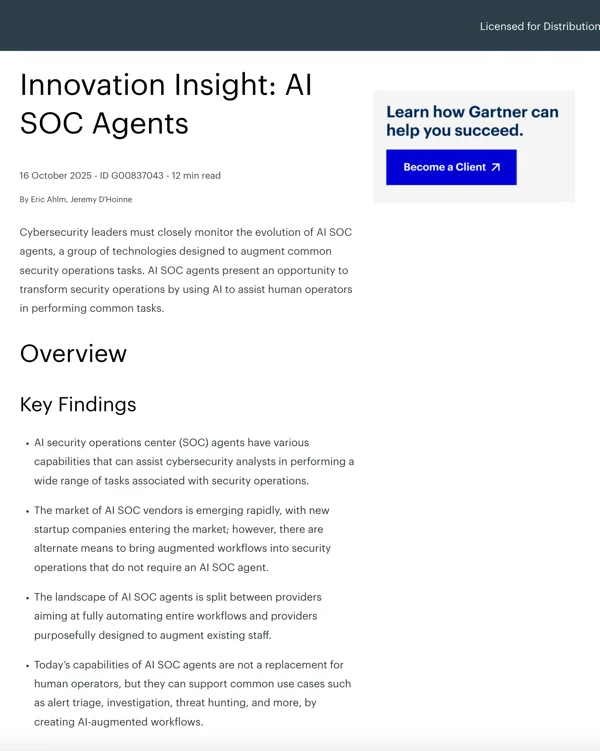
-min.webp)
The use of new AI technologies to empower security operation teams has been a great success, with many startups in the space showing success cases, where customers are able to reimagine their SOCs by automating alert triage and investigation to improve key SOC metrics such as MTTR and operations efficiency. However, some people believe the success of these startups is short lived.
The argument is simple: massive cybersecurity incumbents possess an insurmountable "data moat," a vast reservoir of threat intelligence that no newcomer can hope to match. But this perspective misses a crucial point, one that could be the key to the success of a new generation of security innovators. The true competitive advantage lies not in the quantity of data, but in the quality of domain expertise. This is the moat that agile startups are uniquely positioned to build.
The idea that more data automatically equals better security is a fallacy. While large incumbents have access to enormous datasets, much of this data lacks uniqueness. The same common threats, malware signatures, and attack vectors are seen across countless organizations. This commoditized data provides a solid baseline, but it's not enough to create a truly intelligent and adaptive defense.
We have seen the claims of the value of these datasets multiple times before. The large telecom companies, for example, have often touted their Managed Security Services as privileged due to the amount of data they have access to; however, their services are typically of lower quality than smaller, specialized providers. What do these smaller providers have in common?
{{ebook-cta}}
As investor Michelle Moon argues, a sustainable advantage comes from something much harder to replicate. For AI-SOC startups, that "something" is the specialized, nuanced expertise of elite security analysts.
Instead of trying to out-muscle giants on data volume, successful AI-SOC startups are focusing on codifying the detection, triage, and investigation skills of highly-skilled security professionals. They are building systems that don't just identify anomalies but think and act like a highly skilled analyst. Their value proposition isn't "we have more data," but rather "we know how to use the data to deliver better results."
This focus on emulating human expertise directly addresses the limitations of the incumbent's data advantage. While a large platform might know what a million attacks look like, an expert-driven AI-SOC aims to understand how to investigate attacks, including attacks no one has ever seen before.
To succeed, these startups must do more than just build clever technology; they need to deliver a seamless and trustworthy experience. Michelle Moon outlines four key principles that are essential for any AI product to thrive, and they are particularly relevant for the AI-SOC space:
By mastering these four elements, AI-SOC startups can create a powerful, self-reinforcing moat built on trust, adaptability, and indispensable value. They can prove that the deepest insights come not from the biggest dataset, but from the most refined expertise.
Get Gartner's guidance on evaluating and adopting AI SOC agents

